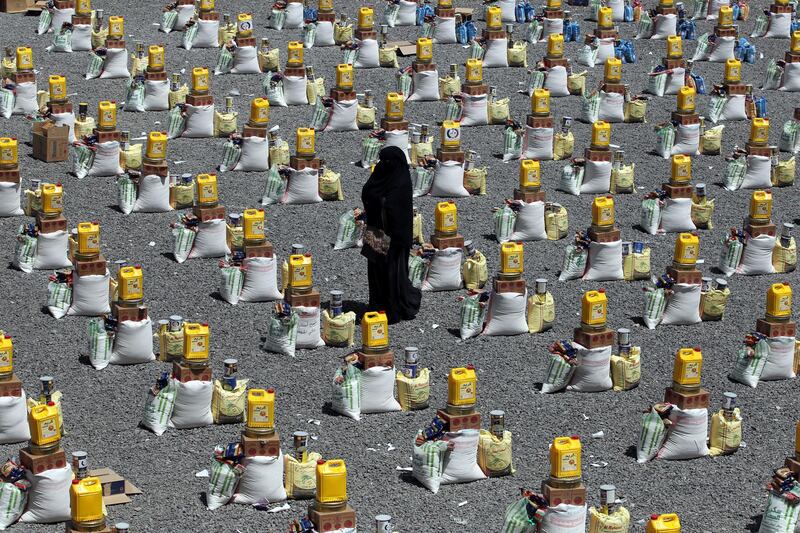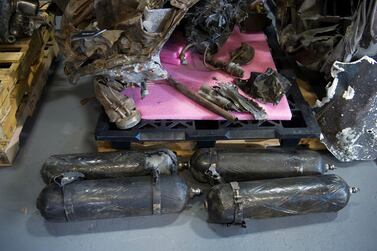The UN World Food Programme is considering suspending aid to Yemen’s Houthi-controlled areas because of the “obstructive and unco-operative" stance by the rebel leaders.
Houthi authorities have interfered with food distribution and have denied access to aid workers of areas that are most in need of assistance, the agency said on Monday.
“If we are not given the access and freedom to decide who gets this vital assistance, then we will have to take the hard decision of implementing a phased suspension of our operations in Houthi-controlled areas,” spokesman Herve Verhoosel said.
Negotiations with Houthi leaders on independent access to the hungry were yet to yield tangible results, Mr Verhoosel said.
The agency wrote to rebel leaders this month to say it had reluctantly reached the conclusion that unless progress was made, it would implement a phased suspension of aid.
"Those in need are being let down by some Houthi leaders who have broken assurances they gave us on stopping food diversions, and finally agreeing to a beneficiary identification and biometric registration exercise,” Mr Verhoosel said.
The agency is trying to feed about 12 million of Yemen's most vulnerable – nearly half of the population – at a cost to the international community about $175 million (Dh643m) a month.
Many areas are on the brink of being declared famine zones and the UN has called the situation the worst humanitarian disaster in the world.
"Already, many are not being reached because of the obstacles that are being put in our way," Mr Verhoosel said.
Yemen has been devastated by the war that broke out after Iran-backed Houthi rebels took control of the country's capital city of Sanaa in 2014.
This is not the UN agency's first warning to the Houthis. In December it said the rebels were stealing "from the mouths of hungry people".
The agency accused the rebels of diverting food deliveries, after photo evidence collected by the agency showed trucks illicitly removing food from designated food distribution centres.
The programme's monitors also found that rebels were manipulating lists of aid recipients.
“Some food relief is being given to people not entitled to it and some is being sold for gain in the markets of the capital,” they said.
The agency said similar cases had been reported in other areas controlled by the rebels.
The problem of lost and stolen aid, which has contributed largely to the crisis, is common in areas controlled by the Houthi rebels.
"At a time when children are dying in Yemen because they haven't enough food to eat, that is an outrage," agency executive director David Beasley said in December.
"This criminal behaviour must stop immediately."







